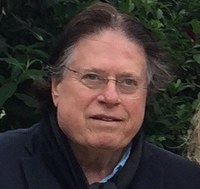Socially organized sentiments: Exploring the link between religious density and protest mobilization, 1960–1995
Abstract
Extensive research has shown individual religiosity to have an impact upon U.S. protest participation. But very little work has examined the role of religious density in a community on the likelihood of protest mobilization. Our research links the religious density across 62 counties in New York State to various protest mobilization issues during the period of 1960–1995. In this research, we develop a theory of socially organized sentiments to examine religious influences on overall protest event mobilizations in local communities, a specific example of a more general theory that can link community structure to multiple forms of civic engagement. The impact of various religious traditions is assessed by using measures for the density of religious population per congregation of three religious traditions—Mainline Protestantism, Evangelical Protestantism and Catholicism. The analysis also assesses the likelihood of mobilization concerning four specific issues—African-American civil rights, gender, anti-nuclear/peace, and anti-poverty movements.
Abstract
Extensive research has shown individual religiosity to have an impact upon U.S. protest participation. But very little work has examined the role of religious density in a community on the likelihood of protest mobilization. Our research links the religious density across 62 counties in New York State to various protest mobilization issues during the period of 1960–1995. In this research, we develop a theory of socially organized sentiments to examine religious influences on overall protest event mobilizations in local communities, a specific example of a more general theory that can link community structure to multiple forms of civic engagement. The impact of various religious traditions is assessed by using measures for the density of religious population per congregation of three religious traditions—Mainline Protestantism, Evangelical Protestantism and Catholicism. The analysis also assesses the likelihood of mobilization concerning four specific issues—African-American civil rights, gender, anti-nuclear/peace, and anti-poverty movements.
